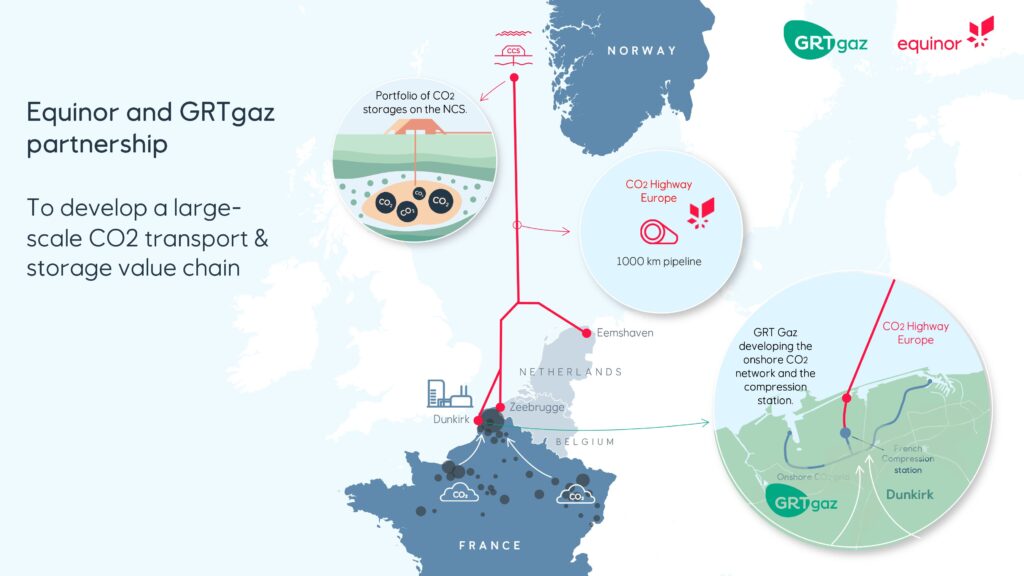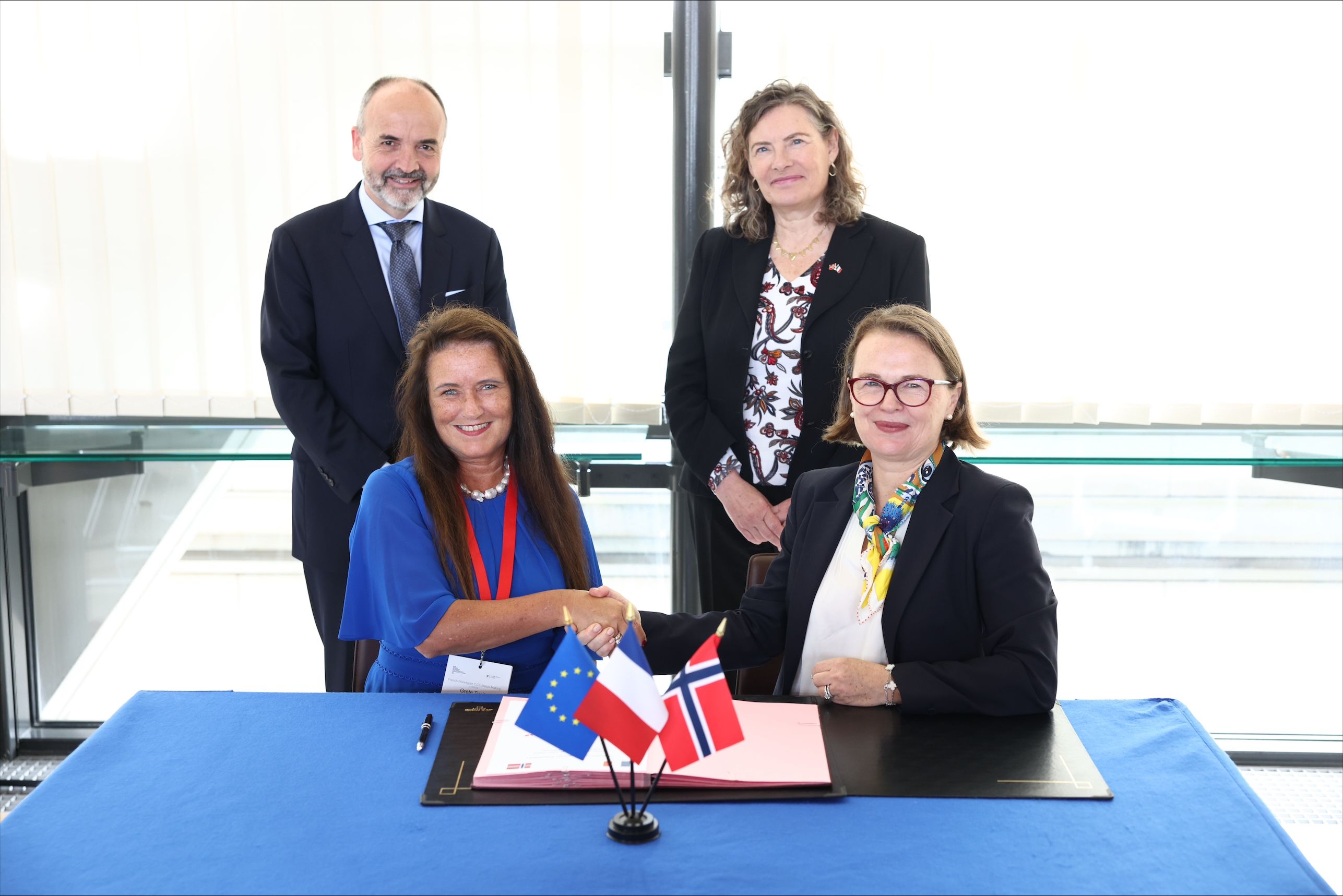Norwegian state-owned energy giant Equinor and French gas transmission operator GRTgaz have signed a project development agreement (PDA) for a transport system for captured CO2 from industrial emitters in France to permanent storage offshore Norway via the planned CO2 Highway Europe pipeline project.
The development will comprise a network of onshore CO2 pipelines to be developed by GRTGaz, which will connect France’s Dunkirk industrial area to Equinor’s CO2 Highway Europe, a large-scale CO2 pipeline also connecting Zeebrugge, Belgium, to a portfolio of storage sites under the seabed off Norway.
The companies will cooperate in the development of their CO2 transmission and storage infrastructures and associated services, including network planning, technical design and industrial safety, interoperability, regulatory aspects and institutional relations.
Feasibility studies are currently underway, with basic engineering studies expected to be launched at the end of 2024 and commissioning in 2029.
Specifically, GRTgaz will develop a 30-kilometer onshore pipeline network in the Dunkirk region and a compressor station in Dunkirk sending the CO2 into the offshore pipeline connecting to the CO2 Highway Europe.

“For industries that cannot decarbonise directly through clean power, Carbon Capture and Storage (CCS) offers a viable solution. By building CO2 transport and storage solutions at an industrial scale together with GRTgaz we can help carbon-intensive industries in France to continue developing and securing jobs and value creation in a sustainable future,” said Grete Tveit, Senior Vice President for Low carbon solutions at Equinor.
“The collaboration also strengthens the viability of the CO2 Highway Europe project as the French connection will further strengthen economies of scale.”
The project under the PDA aims to help decarbonise the Dunkirk industrial area which accounts for around 20% of France’s industrial CO2 emissions.
The capacity in the initial phase will be 3 to 5.5 million tonnes of CO2 per year, and can be expanded to also accommodate CO2 captured at other industrial clusters in France.
“GRTgaz is developing dedicated transmission networks contributing to transport CO2 from the French industrial sites where it is captured to storage and utilisation sites in France and Europe. Indeed, the capture, storage and utilisation of CO2 will play a major role in decarbonising the national and European economy, and infrastructure is an essential element in this CO2 value chain,” said Sandrine Meunier, CEO of GRTgaz.
The project is in line with the proposed French government’s strategy (France 2030) for carbon capture, utilization and storage (CCUS) and with the desire to step up collaboration between France and Norway on green industrial transformation, in accordance with the strategic partnership signed between the two countries on January 16, 2024.
The governments of Norway and France in 2022 signed a letter of intent (LoI) to cooperate on the development and deployment of carbon capture and storage (CCS).

